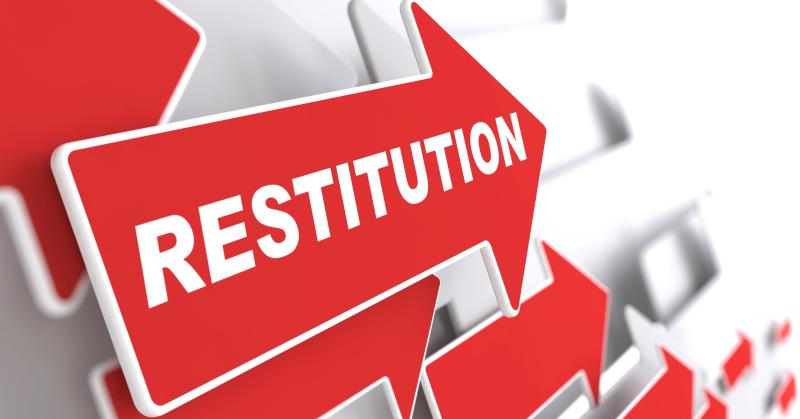Victim Restitution Information from the District Attorney's Office
Definition
Restitution is the court-ordered repayment of losses directly related to the crime by the offender to the victim. Restitution is ordered only after a defendant pleads guilty or has been found guilty by trial.
Claiming Restitution
The judge presiding over the criminal case can only consider losses directly caused by the crime and for which documentation has been provided to the District Attorney through a victim’s Victim Impact Statement. Restitution can only be requested for those out-of-pocket costs that can be documented. Restitution can be sought for medical expenses, replacement or repair of damaged property, loss of wages, insurance deductibles, and other expenses directly related to the crime.
The District Attorney is responsible for providing the court with the amount of restitution owed to the victim, based upon the documentation provided by the victim to the District Attorney.
A Victim Impact Statement (VIS) is provided by the District Attorney’s Office to all victims of crime where damage to a person or property is charged. The VIS describes and identifies the emotional and financial impact and losses suffered as a result of the crime. To ensure the correct amount of restitution is ordered, it is important that the victim complete the VIS.
If you have not received a Victim Impact Statement and would like to complete one, please contact 970-244-1730, ext. 1 to request a form.
The defendant has a right to see any documentation submitted to the court. The defendant also has the right to question the restitution and may ask the court for a restitution hearing. The victim (or if a business is the victim, a representative) may be subpoenaed to testify if the judge orders a hearing.
At the sentencing hearing, the judge will make a specific order of restitution if the amount is known and documented. If restitution is ordered, a final restitution figure is decided by the court and the defendant will be required to make payments.
Restitution differs from Crime Victim Compensation in that restitution is paid by the offender while crime victim compensation is paid from criminal justice-collected funds. If a victim receives crime victim compensation funds, they cannot claim those same expenses through restitution, or vice versa.
Restitution FAQs
It is the responsibility of the victim to notify the court of any change of address information, since restitution is generally paid over a period of time. To keep your contact information current, contact the court clerk:
Mesa County Combined Courts Restitution: Call (970) 257-3625.
Any person or entity who has suffered a financial loss due to a criminal act committed by another person can request restitution as long as a case has been filed by the District Attorney’s Office.
Below are some examples. This is not a complete listing and if you have questions regarding whether you can request restitution, please contact the Restitution Coordinator or Victim Services Unit at (970) 244-1730 ext 1.
- Medical/dental expenses
- Repair or replacement of property
- Insurance deductibles
- Lost wages
- Restitution cannot be requested for:
- Future loss of earnings
- Pain and suffering
- Expenses covered by insurance
- Out of pocket loss that cannot be documented
- Lost wages for court appearances
For assistance with completing this, please contact the Restitution Coordinator or Victim Services Unit at (970) 244-1730 ext 1.
If you know that restitution was ordered but have not received a check, you can contact the Court Clerk or the Collections investigator for the court at (970) 257-3625.
Contact the Court Clerk or the Collections investigator for the court at (970) 257-3625 to update your information.

